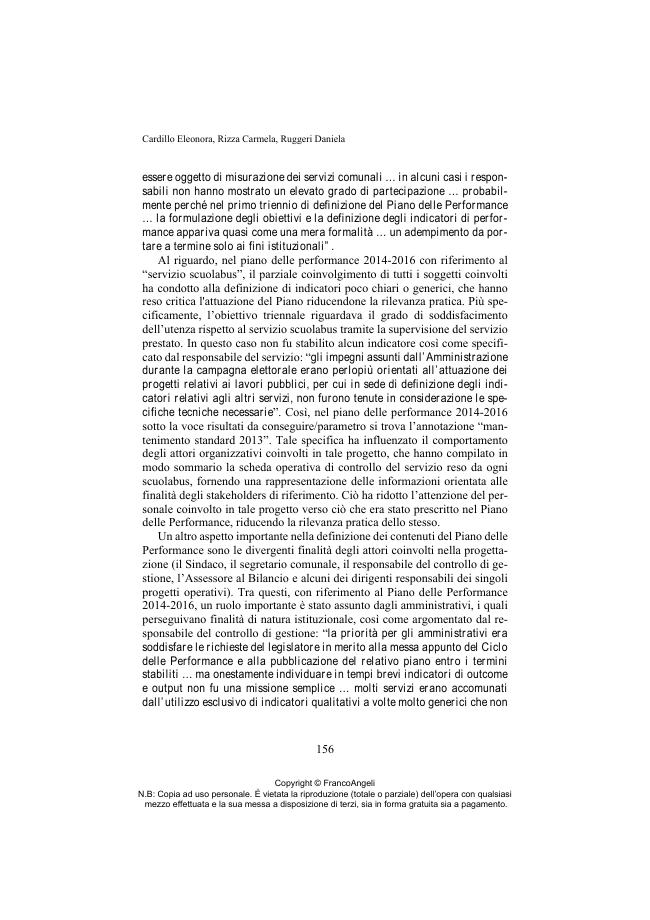La rilevanza pratica dei sistemi di misurazione delle performance negli Enti Locali : analisi di un caso
143-168 p.
In the last decades, public organisations have been subject to several institutional changes, aimed at increasing their efficiency through the introduction of management control tools. The proliferation of management accounting tools planned for public companies has not always generated a corresponding diffusion of these tools in practice, widening the gap between theoretical models and practice. This gap is due to the divergence between meanings and roles assigned to performance measurement by theoretical models and practical dimensions. Focusing on the Local government context, this paper aims to understand the practical relevance of performance measurement systems in public organizations, verifying how these systems can affect the logics and behaviours of actors involved in the decision making process.
The theoretical insights coming from literature review are used to interpret the practical relevance of performance measurement systems in a case study of a Local government placed in the South of Italy. The empirical evidence showed that the actors' interests and objectives can affect the Performance Plan contents and its implementation, activating interpretive processes that are not always consistent with the underlying logics to which the measurement should be inspired. The case study showed how the practical relevance of the performance Plans is greater for those projects in which there was a sharing of the measurement meanings by political and administrative actors, which affects the definition of the Performance Plan contents and its implementation. [Publisher's text].
Forma parte de
Management Control : 3, 2020-
Artículos del mismo número (disponibles individualmente)
-
Información
Código DOI: 10.3280/MACO2020-003007
ISSN: 2239-4397
KEYWORDS
- Measurement of performance, Local Authorities, practical relevance



